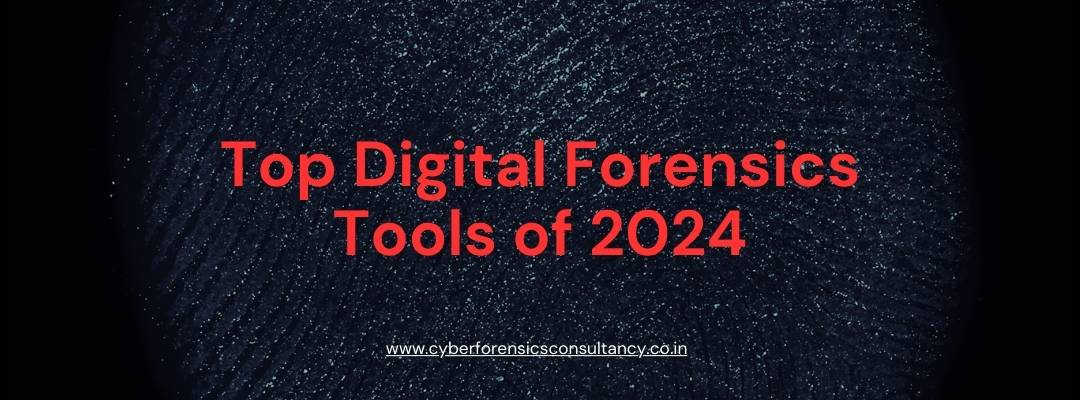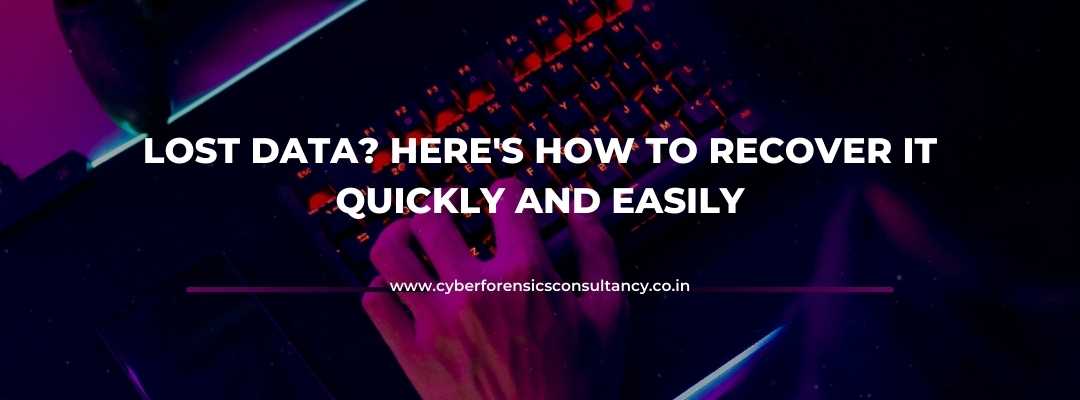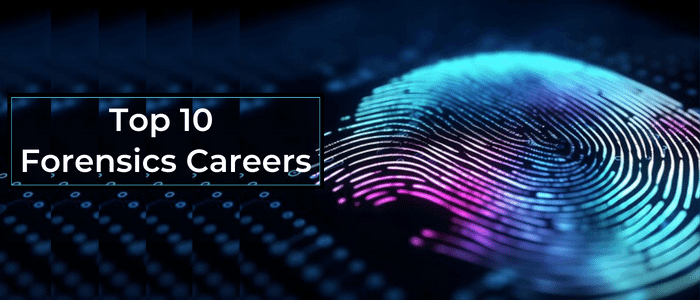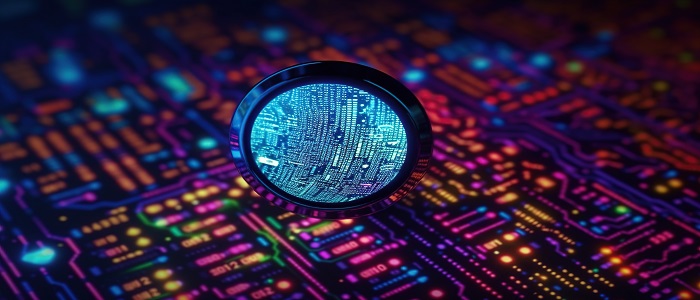
Digital Forensics: A Powerful Tool for Cybersecurity Investigations
In the age of smartphones, laptops, and interconnected devices, our lives are intricately woven into a digital tapestry. We bank, shop, chat, and share in this vast digital world. But there’s a catch – with great convenience comes great vulnerability. Cybercriminals are like digital pirates, sailing the seas of the internet, waiting to raid our virtual treasures. Cybersecurity investigation is our search to track down these modern-day pirates and bring them to justice. It’s like a digital treasure hunt where the treasure is your sensitive data.
Now, imagine you’re a digital pirate hunter, but you’ve been handed a ship without a compass. Digital forensics is your compass in the vast digital ocean. It’s your Sherlock Holmes. Without it, you’d be sailing blind, and those cybercriminals would remain untouchable ghosts in the digital ether.
Understanding Digital Forensics
Digital forensics is the art and science of collecting, preserving, and analyzing digital data in a way that preserves its integrity for potential use as evidence in legal cases. It’s like being a digital archaeologist, sifting through layers of data to uncover hidden artifacts. Digital forensics experts use many tools, much like a detective uses magnifying glasses and fingerprint kits, to examine electronic devices for evidence of digital mischief.
Cybersecurity Investigation and Digital Forensics
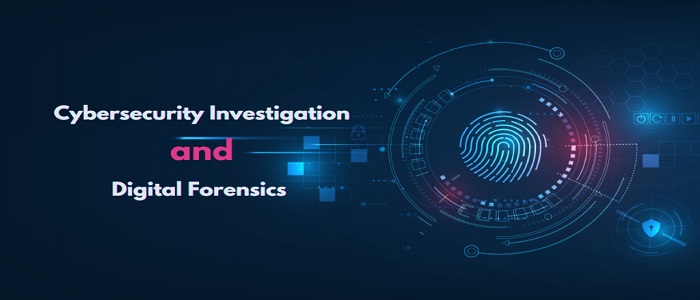
Cybersecurity investigation and digital forensics are like the dynamic duo of the digital world. They work hand-in-hand to uncover cybercrimes and bring the perpetrators to justice. Let’s imagine a scenario:
You wake up one day to find your bank account has been emptied, and your email has been bombarded with mysterious messages. Panic sets in. You’re the victim of a cybercrime, a heist in the digital realm. This is where the digital detective duo comes into play.
Cybersecurity investigators are like the first responders. They stop the bleeding, contain the damage, and ensure the breach doesn’t spread. They’re the paramedics of the digital world, working to save the patient (in this case, your data).
Forensic experts, on the other hand, are crime scene investigators. They arrive after the chaos to collect evidence, like dusting for fingerprints. They dive deep into your digital life, examining devices, logs, and data trails to find clues about what happened. Was it a phishing attack, malware infection, or a good old-fashioned hack? They solve the digital tapestry and identify the digital hackers responsible.
Once they’ve gathered the evidence, the cybersecurity investigators can use it to build a case. It’s like turning a pile of puzzle pieces into a clear picture of the crime, complete with suspects, motives, and methods.
Applications of Digital Forensics in Cybersecurity
Now, let’s sail through the diverse applications of digital forensics in cybersecurity investigations. These are the various scenarios where digital detectives shine:
1. Incident Response
Picture this: a digital heist is underway, and your firewall is the last line of defense. Once the breach is detected, forensics experts step in to understand how it happened, what data was compromised, and how to prevent future breaches. It’s like a cyber-emergency room, where doctors (forensics experts) save lives (data) and diagnose the ailment (the breach).
2. Cybercrime Investigations
When a cybercrime occurs, digital forensics experts don their detective hats and start collecting evidence. They track down the digital breadcrumbs left by cybercriminals, gather logs, and examine devices. It’s like a digital game of Clue, where they identify the who, what, and where of the crime.
3. Data Recovery
Data Recovery with Digital Forensics: Ever deleted an important file by accident? Digital forensics can sometimes recover lost or deleted data. It’s like magic, bringing back what was thought to be gone forever.
4. Expert Witness in Court
Digital forensics experts often find themselves in court, presenting their findings as evidence. They’re the tech-savvy witnesses who help judges and juries navigate the complex digital landscape. It’s like being the translator for a foreign language that the jury doesn’t speak.
5. Fraud Detection
In the financial world, digital forensics plays a crucial role in uncovering fraud. They follow the money trail, examining financial records and digital transactions to uncover fraudulent activities. It’s like being the accountant’s trusted assistant, double-checking the books.
6. Internal Investigations
Digital forensics helps organizations discover employee wrongdoing, such as data theft, harassment, or policy violations. It’s like being the internal investigator, ensuring that the corporate ship stays on course and doesn’t fall into digital mutiny.
Future of Digital Forensics in Cybersecurity
In the ever-evolving digital landscape, digital forensics is focused on something other than its laurels. It’s gearing up for the future, where cybercriminals are like chameleons, constantly adapting to new environments. Here’s a glimpse into what lies ahead:
a. Artificial Intelligence (AI) and Machine Learning
Imagine having an assistant who can read and analyze digital data faster and more accurately than any human ever could. That’s where artificial intelligence (AI) and machine learning come into play. These technologies are set to revolutionize digital forensics. With AI, experts can automate the process of sifting through mountains of data to pinpoint anomalies, identify potential threats, and speed up investigations. It’s like upgrading from a magnifying glass to a digital fingerprint scanner with a built-in detective. Digital forensics will become more efficient, freeing up experts to focus on interpreting findings and solving complex cases.
b. Blockchain Technology
Blockchain technology behind cryptocurrencies like Bitcoin, is changing the game for digital forensics. With its transparent and immutable ledger, blockchain can be a vital tool in tracking transactions and verifying the integrity of digital evidence. Its experts can use blockchain to establish secure chains of custody for evidence and ensure its authenticity. It’s like having an unbreakable chain connecting all the clues in a case, making it nearly impossible for cybercriminals to tamper with evidence. In a blockchain-powered future, the integrity of digital evidence will be more robust than ever.
c. Cloud Forensics
As our data increasingly resides in the cloud, digital forensics is moving skyward. Cloud forensics experts will become adept at investigating cybercrimes in cloud environments. This means tracking digital footprints left on cloud servers, analyzing access logs, and uncovering potential breaches. It’s like moving from exploring the ground to soaring among the clouds, chasing digital culprits in their ethereal playground.
d. IoT Investigations
With the expansion of IoT devices, digital forensics will expand its reach into this connected realm. Experts must become well-versed in investigating crimes involving smart home appliances, wearable devices, and even connected vehicles. It’s like being a detective who can solve mysteries in not just one but many interconnected castles.
e. Cybersecurity Training
The future of digital forensics also includes comprehensive training programs. These programs will prepare the next generation of digital detectives to navigate the ever-evolving landscape of cyber threats. Just as detectives must adapt to new techniques and tools, future forensics experts will need to stay ahead of the curve, mastering the latest technologies and strategies. It’s like a never-ending quest for knowledge, ensuring that the digital detectives of tomorrow are always ready for the next challenge.
Digital Forensics and Incident Management
Imagine your digital castle is under siege. In the world of cybersecurity, incidents are like enemy attacks, and digital forensics is your trusty shield. When an incident occurs, forensics not only investigates the breach but also helps develop incident response strategies. It’s like having a battle-tested strategist in your corner, ensuring that the enemy’s next move is met with a well-planned defense.
Legal and Ethical Considerations in Digital Forensics
Just as real detectives have to follow the law, forensics experts must adhere to strict ethical and legal guidelines. These experts must handle digital evidence carefully, ensuring it’s admissible in court. They’re like digital lawyers, ensuring the evidence holds up in the cyber courtroom.
The Impact of Mobile Devices on Digital Forensics
In the age of smartphones, digital forensics extends its reach to these pocket-sized devices. Just as Sherlock Holmes might have a special skill for solving cases in the countryside, these forensics experts must adapt their techniques to tackle cases involving mobile devices. It’s like being a detective who’s equally skilled in solving mysteries in both urban and rural settings.
Digital Forensics and the Internet of Things (IoT)
With the rise of smart fridges, thermostats, and even digital toothbrushes, digital forensics expands into the realm of IoT. These experts may find themselves investigating digital crimes involving smart appliances. It’s like being the detective who’s equally comfortable solving mysteries in the castle’s grand ballroom and secret passageways.
Global Collaboration in Digital Forensics
Cybercrimes often cross international borders, requiring global cooperation among digital forensics teams. Just as global intelligence agencies work together to combat international threats, digital forensics experts from around the world collaborate to solve complex cases.
Cybersecurity Awareness and Digital Forensics
Digital forensics isn’t just about investigating after a breach; it’s also about promoting awareness and prevention. These experts often engage in cybersecurity awareness campaigns, educating the public about the dangers of cybercrimes and the importance of digital hygiene.
Conclusion
In the world of cybersecurity, digital forensics is the unsung hero, tirelessly solving digital mysteries and ensuring the safety of our digital treasures. It’s not just for government agencies and corporations; it’s for all of us who live in the digital age.
So, the next time you hear about a cyberattack, remember the digital investigators behind the scenes, poring over lines of code and hunting down digital villains. Digital forensics is not just an art; it’s a science that protects our digital treasures from the lurking shadows of the cyberworld.

